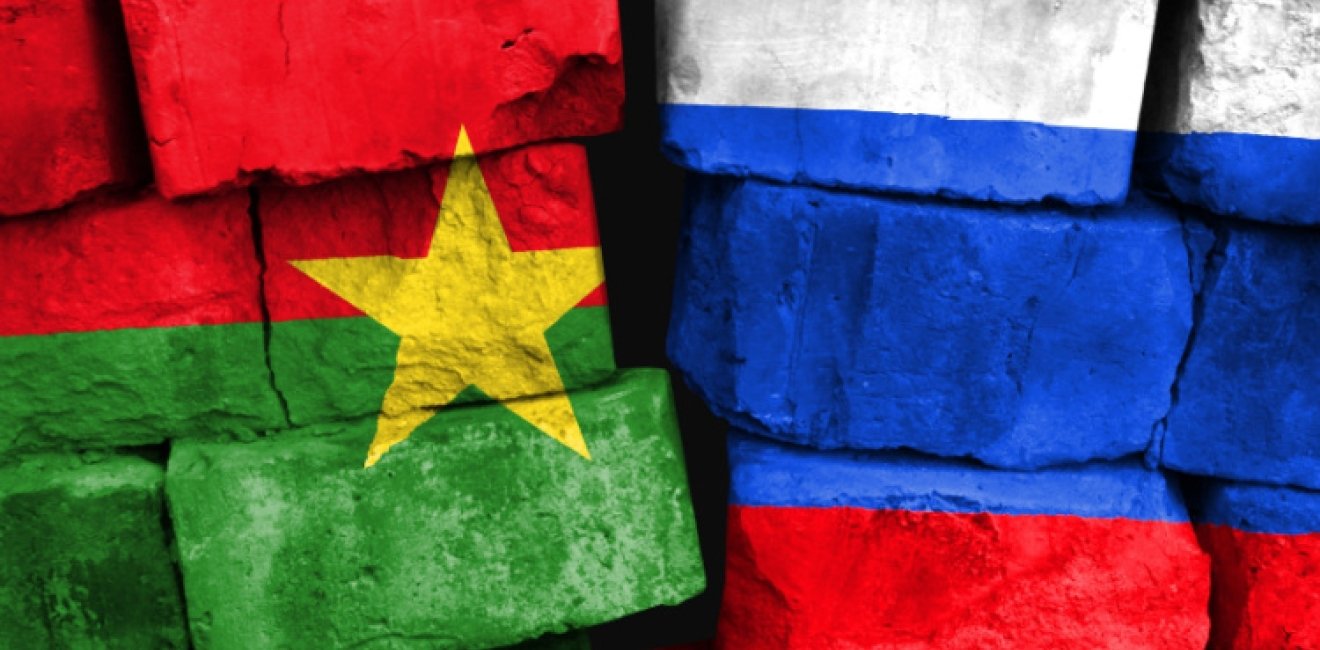
A blog of the Africa Program
Disinformation Manipulates Discontent
Francophone West Africa’s six military seizures of power since 2020 were underpinned by waning popular support for democracy in the region. The coups—two in Burkina Faso (both in 2022), two in Mali (2020 and 2022), one in Guinea (2021), and the most recent in Niger (2023)—have often been celebrated by local populations, despite elected leaders in some instances being forcefully replaced. While citizens may prefer democracy, they also desire governments that address legitimate frustrations. Democratically elected governments in West Africa have failed to support citizens and enabled some officials to build riches from corrupt practices. Leaders claim to be democratic to maintain legitimacy but act in their self-interest to consolidate power and manipulate electoral systems, making their countries democratic in name only. Moreover, West African populaces have increasingly grappled with the insecurity of militant Islamist insurgencies that threaten lives and livelihoods, as well as more than a decade of unsuccessful domestic and international—namely French—military interventions in response.
In this light, citizen support for coups can be understood. Citizens celebrate new hope for long-overdue and much-needed change while their immediate security needs trump overarching democratic values. What makes less sense, however, is the sustained support for coup leaders—even as security and economic conditions worsen under junta leadership—and how this support lends itself to further approval of Russia’s destabilizing actions across the region.
Russian disinformation operations across West Africa have led to an unprecedented rise in popular support for Russia, citizen demands for Russian interventions, and, in some cases, new military partnerships between African countries and Russia.
Burkina Faso is an illustrative example. In 2014, the country emerged from a 27-year authoritarian government. Since then, Burkina Faso experienced political reforms and democratic gains. Until recently, Reporters Without Borders called the country “one of Africa's success stories regarding freedom of the press.” Then, in 2022, the security situation proved too difficult for Burkina Faso’s democratic institutions to handle, and the country experienced two coups in nine months. The coups followed protests demanding democratically-elected President Kaboré’s resignation and holding him accountable for the country’s deteriorating security. Traoré—the second and current post-coup leader—has suspended the country’s constitution and implemented a transitional charter, which cannot be revised without his approval.
Both post-coup leaders justified their takeovers by claiming they had acted to respond to the preceding leader’s failure to address a strengthening jihadist insurgency. Both promised to restore security. Instead, the security and humanitarian situations in Burkina Faso have greatly worsened. The number of people killed by jihadist groups has nearly tripled since the coup, and more than 2.1 million Burkinabe have been forcibly displaced. Approximately one in four schools are not operating, increasing the vulnerability of young Burkinabe who already face an uncertain future. Adding to the jihadist threat to civilians, Burkina Faso’s military has also faced credible accusations of human rights abuses, such as extrajudicial killings of children and a military-linked massacre of at least 156 civilians. Traoré issued an emergency law allowing him to take any necessary measures to counter the insurgency, including requisitioning people and restraining civil liberties. Since then, he has been accused of conscripting journalists, civil society activists, and opposition party members.
However, Traoré has not yet faced widespread backlash despite a worsening security situation under his rule. Instead, popular calls have been supportive of the coup leaders and, in general, in support of authoritarianism: “No to France, yes to Russia.”
Complexly situated in this backdrop of domestic and French military failures against jihadist insurgencies, poverty, underdevelopment, and legitimate unanswered citizen grievances, Russia has effectively seized opportunities to manipulate citizen frustrations through disinformation campaigns. Russian disinformation operations across West Africa have led to an unprecedented rise in popular support for Russia, citizen demands for Russian interventions, and, in some cases, new military partnerships between African countries and Russia. In Burkina Faso, Russian-generated disinformation has encouraged democratic backsliding, fostered coups, and increased support for repressive regimes (domestically and abroad) regardless of their human rights records.
...there are well-documented examples of Russian disinformation campaigns across West Africa and the continent.
Russia’s disinformation campaign in Burkina Faso builds off the legitimate fears and frustrations of the Burkinabe population while reaffirming their concerns. Disinformation manipulates discontent, blaming France for Burkina Faso’s challenges, presenting Russia as a savior, and embracing authoritarian leaders like Traoré who stand ready to partner with Russia.
This disinformation takes a variety of identifiable forms. Russian operatives employ inauthentic social media accounts and pretend to be Africans with a genuine interest in Burkina Faso. These accounts play on common frustrations and place blame on France’s military failures and the West more broadly. They glorify Russian President Vladimir Putin, overstate the successes of the Wagner Group, and advocate for closer relationships between Burkina Faso and Russia. Burkinabe supporters of these accounts are invited to join private messaging groups that spread more radical propaganda that authorities might otherwise censor as disinformation. In early Russian disinformation campaigns, Russia struggled to make its content look legitimate. Over time, however, Russia has recruited local African political players and influencers to form and legitimize messaging, making campaigns more credible and resonant with local populations. Russian operatives have further developed fake news sources to spread disinformation or impersonate or buy legitimate accounts to ensure a spread of information favorable to Russia.
In some cases, disinformation campaigns have also sought to delegitimize dissent. In response to journalists’ unfavorable investigations into Burkina Faso’s military, for example, accounts and sites associated with the Wagner group began attacking the journalists to discredit them and halt their work. Unfortunately, Burkina Faso is not alone, as there are well-documented examples of Russian disinformation campaigns across West Africa and the continent.
Russia’s successful disinformation campaigns have resulted in greater citizen support for Russia in Burkina Faso, which is increasingly vital for Russia and the coup leaders as they move the Burkinabe-Russian partnership from rhetoric to reality, as seen with the recent reopening of the Russian embassy in Burkina Faso, the arrival of Russian military personnel, and Russian-sponsored plans to build a nuclear power plant. Russian disinformation and its influence empower leaders like Traoré because it helps legitimize coup leaders in places where the West and the United States will not engage local leadership. Instead, it is Russia that provides aid, military support, and even personal protection to coup leaders.
While this is not to argue that the United States should provide material and political assistance to leaders like Traoré, it does illuminate a fundamental problem: the US response to coup leaders cannot be simply silence and sullenness. Such a response leads Traoré and the citizenry into the hands of Russia, pushing the country further from the path of democracy building and into humanitarian and insecurity crises that threaten the entire region. While Russian disinformation may play up citizen grievances, the Russian partnership does not prioritize Burkinabe citizens nor adequately address the country’s worsening security situation. Russia’s primary goal is to extract resources and spread influence and military power in the region. It is not interested or capable of addressing the underlying causes of Burkina Faso’s economic malaise and instability.
Values-based US Policy
A 2021-2022 study by Afrobarometer in 36 African countries showed that two-thirds of Africans polled prefer democracy over any other system of government, and 80% rejected one-man rule. However, only 38% of respondents said they were satisfied with how democracy works in their country. These results indicate a growing perspective of skepticism toward democracy in Burkina Faso and across the continent. While most Africans want democracy, they have yet to see their countries’ current democratic systems delivering on what is expected of them.
Suppose the United States is to counter Russia’s growing and nefarious influence in Burkina Faso and across Africa. In that case, the United States must focus on these shared values and aspirations with Africans: democracy, human rights, and the ability and vision through development efforts to support communities in addressing their root causes of instability and conflict. After all, these root causes of citizen discontent are also the basis through which disinformation takes hold.
...the US response to coup leaders cannot be simply silence and sullenness.
This analysis is not to oversimplify the complexities and difficult circumstances that countries like Burkina Faso face. Instead, its goal is to underscore the way out of crisis and instability and away from actors like Russia who are fueling it. Through creative, adaptable, innovative solutions that address the underlying causes of extreme poverty and instability, the United States will succeed in these efforts. US policy must focus on root causes and prioritize people. Such an approach benefits from sustainable partnerships between the United States and local communities in ways that empower citizens and increase their resistance to jihadist recruitment. Success requires greater and longer-lasting investment in civil society organizations and social services development to improve the resilience, opportunities, and well-being of people throughout the country.
Moreover, an independent, free press will be key to directly addressing disinformation. Increased support for independent media should be a foreign policy priority, considering the key role of reliable information and transparency in functioning democracies. In the short term, the United States can support local media through political support and help them develop fact-checking services in response to disinformation. In the long-term support of local media, capacity building, economic security, legitimacy, and empowerment are vital. This could include public diplomacy efforts that engender democratic values and build local media capacity.
Torianna Eckles is the communications intern with the Wilson Center Africa Program. Previously, she was a staff intern (Director's Office) with the Stafford Capacity Building Internship with the Africa Program for the Fall 2023 term. She is a senior at The George Washington University, double majoring in Peace and Conflict Resolution and Political Science.
The opinions expressed on this blog are solely those of the authors. They do not reflect the views of the Wilson Center or those of Carnegie Corporation of New York. The Wilson Center's Africa Program provides a safe space for various perspectives to be shared and discussed on critical issues of importance to both Africa and the United States.
Author


Africa Program
The Africa Program works to address the most critical issues facing Africa and US-Africa relations, build mutually beneficial US-Africa relations, and enhance knowledge and understanding about Africa in the United States. The Program achieves its mission through in-depth research and analyses, public discussion, working groups, and briefings that bring together policymakers, practitioners, and subject matter experts to analyze and offer practical options for tackling key challenges in Africa and in US-Africa relations. Read more

Explore More in Africa Up Close
Browse Africa Up Close
The Innovative Landscape of African Sovereign Wealth Funds



